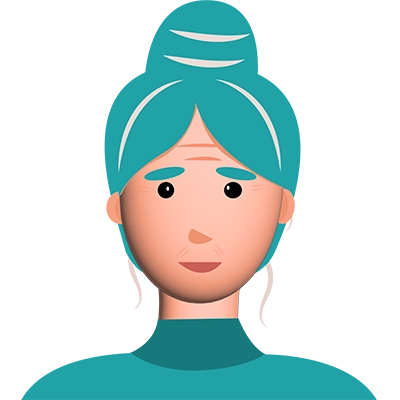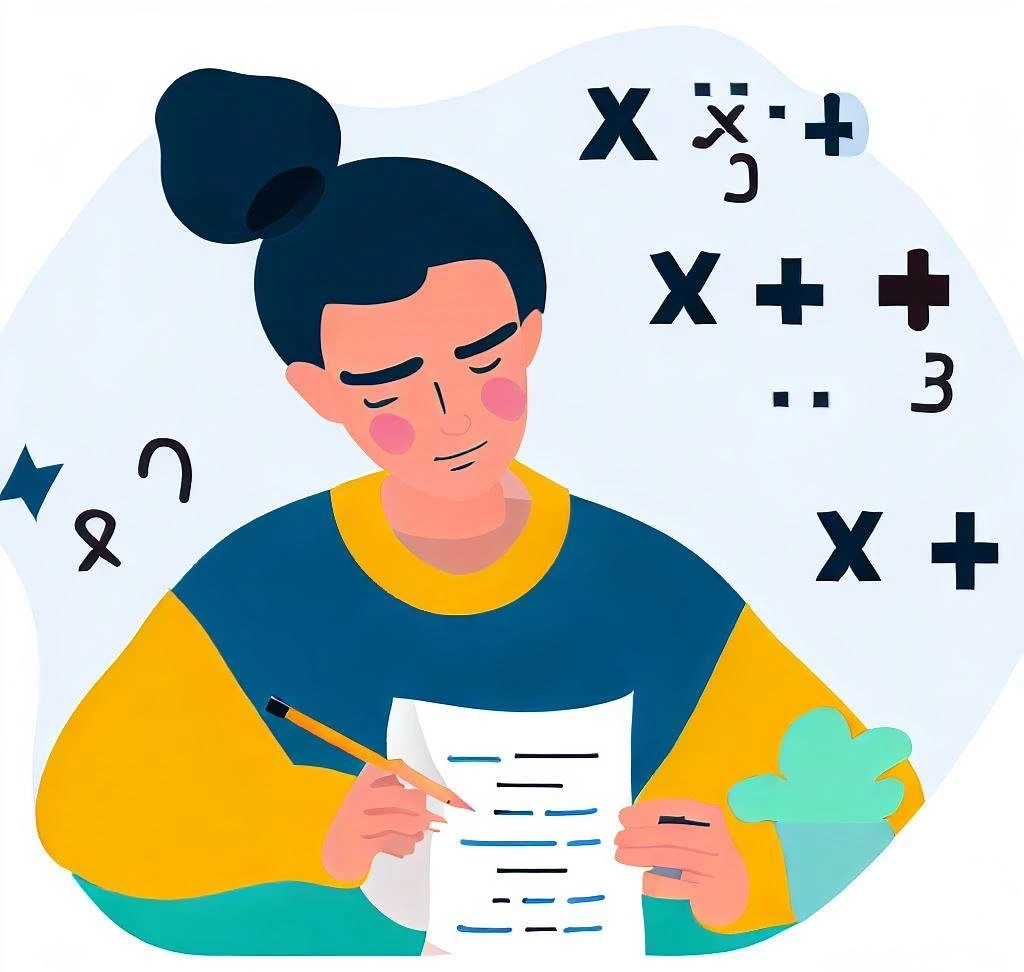Avoid These Common Algebra Exam Mistakes and Achieve Your Best Score

If you're studying for an algebra exam, online exam help can be a useful resource to help you prepare. You can find various websites and services that offer algebra exam help, including online tutoring, practice problems, and study guides. Taking advantage of these resources can provide you with additional support and guidance as you study for your exam.
When it comes to taking an online algebra exam, there are a few additional factors to consider. Make sure that you have a reliable internet connection and a quiet, distraction-free environment to take the exam. Familiarize yourself with the exam format and any specific instructions or requirements, such as whether or not you can use a calculator.
As with any exam, it's critical to avoid common mistakes that students make. Take your time to carefully read and understand each problem, and show your work or steps clearly to avoid losing marks. Double-check your work and avoid careless errors to maximize your score.
By combining online exam help with regular practice and a focus on understanding the concepts, you can improve your algebra exam scores and achieve success in your studies.

Mistake #1: Not Understanding the Fundamentals
Understanding the fundamentals is essential for algebra success. To solve more complex problems, you need a solid foundation. In addition to understanding the fundamental concepts of algebra, such as order of operations and equation solving, you should concentrate on graphing. Knowing how to find the slope and y-intercept of a line, the axis of symmetry for a parabola, and the vertex of a parabola are all examples of this. You'll be better prepared to tackle more advanced problems on the exam if you have a firm grasp of the fundamentals. Here are some of the fundamentals you should concentrate on:
- Order of Operations
- Parentheses: Begin by solving the operations within parentheses. If there are nested parentheses, start at the inside and work your way out.
- Exponents: Work on any exponents or powers that appear in the problem next. If there are multiple exponents, begin with the one on the left.
- Multiplication and Division (performed from left to right): After you've worked through the parentheses and exponents, move on to any multiplication or division problems, working from left to right.
- Addition and Subtraction (left to right): Finally, solve any addition and subtraction problems from left to right.
- Solving Equations
- Graphing
In algebra, knowing the correct order of operations is critical. You'll get the wrong answer if you don't have it. The following is the sequence of operations:
Remembering the correct order of operations is critical in algebra, and practicing using the order of operations will save you time and help you avoid mistakes.
Solving equations is a fundamental skill in algebra. You should be able to solve equations with one, two, or even three variables, as well as systems of equations. Check that you understand the steps in solving equations, such as isolating the variable and checking your answer.
To isolate the variable, perform operations on both sides of the equation to obtain the variable on one side and the constant on the other. To keep the equation balanced, the same operation must be performed on both sides. After you've isolated the variable, double-check your answer by plugging it back into the equation and making sure it still makes sense. By repeating these steps, you will be able to solve equations more quickly and accurately.
Another fundamental skill in algebra is graphing. You should be able to graph linear, quadratic, and more complicated equations. Make sure you know how to find the slope and y-intercept of a line, as well as the axis of symmetry for a parabola and the vertex of a parabola.
To graph a linear equation, first determine the y-intercept, or the point at which the line intersects the y-axis. Then, using the slope, find another point on the line and draw a straight line connecting the two. Use the formula to find the axis of symmetry, which is a vertical line that divides the parabola into two symmetrical halves, for quadratic equations. The vertex is the point on the parabola where the axis of symmetry intersects. Practicing these skills will make graphing during exams easier and faster.
Mistake #2: Not Showing Your Work
Even if you can solve a problem in your head, it is necessary to demonstrate your work on an exam. You can demonstrate that you understand the steps involved in solving the problem by displaying your work. Furthermore, if you make a mistake along the way, your teacher may be able to give you credit for some of your work. Displaying your work can also help you avoid careless errors and keep you organized during the exam. Make sure to clearly label your steps and write legibly.
Mistake #3: Misinterpreting the Problem
Misinterpreting the problem is another common error. It's all too easy to dive into a problem without fully comprehending what it's asking of you. To avoid this, carefully read the problem and identify keywords that can provide clues about what the problem is asking. Draw a picture or diagram if necessary to help you visualize the problem. Before you begin attempting to solve the problem, take the time to understand what it is asking you to do. Here are some pointers on how to interpret problems:
- Read the Problem Carefully
- Identify Key Words
- Draw a Picture or Diagram
In algebra exams, it is critical to read the problem carefully. Make sure you understand what the problem is asking of you, and don't make any assumptions. If necessary, read the problem more than once and highlight or underline key information that will assist you in solving the problem.
Also, pay attention to any special instructions or conditions in the problem, such as domain or variable range restrictions. After you've solved the problem, double-check your work to ensure you've answered the question correctly.
Identifying keywords in the problem can help you figure out what to do. Look for keywords such as "sum," "product," "difference," "quotient," "solve," and "find," as these will help you determine the type of operation you need to perform. For instance, if the problem instructs you to "find the sum of two numbers," you understand that you must add the two numbers together.
Look for keywords that represent the variables in the problem, such as "x," "y," or "z." Understanding the variables will assist you in writing the equations and solving the problem more efficiently.
Drawing a picture or diagram can sometimes help you understand a problem better. This is especially true for geometry or spatial reasoning problems. A diagram can assist you in visualizing the problem and understanding the relationships between the variables involved.
Draw a diagram of the triangle and label the base and height, for example, if the problem is to find the area of a triangle. This will assist you in writing the area equation and solving the problem more efficiently.
Finally, label your diagrams and include any pertinent measurements or angles. This will assist you in avoiding errors and confusion during the exam.
You can avoid common algebra exam mistakes and achieve your best score by following these tips. Regular practice of these skills will help you become more confident and efficient in solving algebra problems during exams.
Mistake #4: Not Checking Your Work
Finally, students frequently make the mistake of failing to double-check their work. After devoting so much time to a problem, it's natural to believe that you've solved it. However, it is critical to check your work thoroughly to avoid careless errors. Use a different method to solve the problem, double-check your arithmetic, and double-check your units of measurement. To avoid mistakes, double-check your addition, subtraction, multiplication, and division. By double-checking your work, you can catch errors before submitting your exam and potentially improve your score. Here are some pointers for double-checking your work:
- Use a Different Method
- Check Your Arithmetic
- Check Your Units
One way to double-check your work is to solve the problem using a different method. This can assist you in identifying any errors in your initial solution. Trying different approaches can also help you gain a better understanding of the problem and its underlying concepts. To ensure accuracy, compare your results to your original solution when using a different method.
Take the time to go over each step of your calculations to ensure that your arithmetic is correct. Check that you have properly carried over any remainder, regrouped numbers, and placed decimals in the correct place. It's also a good idea to double-check your calculations with a calculator or other tool, especially for longer and more complex equations.
It is critical to ensure that your answer is in the correct units when dealing with units of measurement. This could include converting units, such as miles to kilometers or pounds to kilograms. To arrive at the correct answer, ensure that you use the correct conversion factors and cancel out units properly. Also, be mindful of any rounding or significant figure rules that may apply to the problem.
Conclusion
Finally, while algebra exams can be intimidating, with the right approach, you can achieve your best score. Avoiding common errors like misreading questions, rushing through problems, and failing to double-check your work can make all the difference. Instead, read the question carefully, plan your approach, and double-check your work. Organizing your work, using a different method, and double-checking your arithmetic and units can also help you improve your accuracy and confidence. You can improve your algebra skills and pass your next exam with practice and patience.